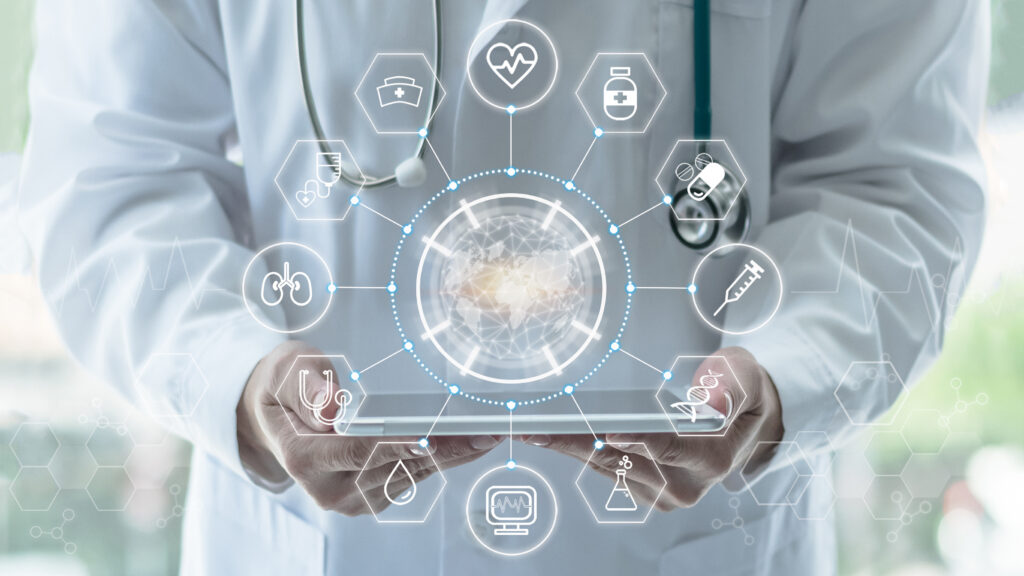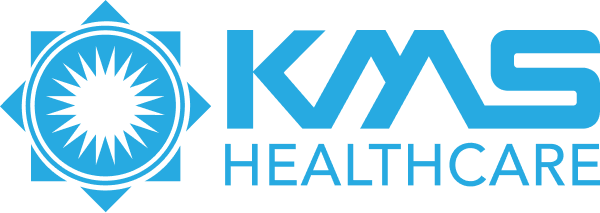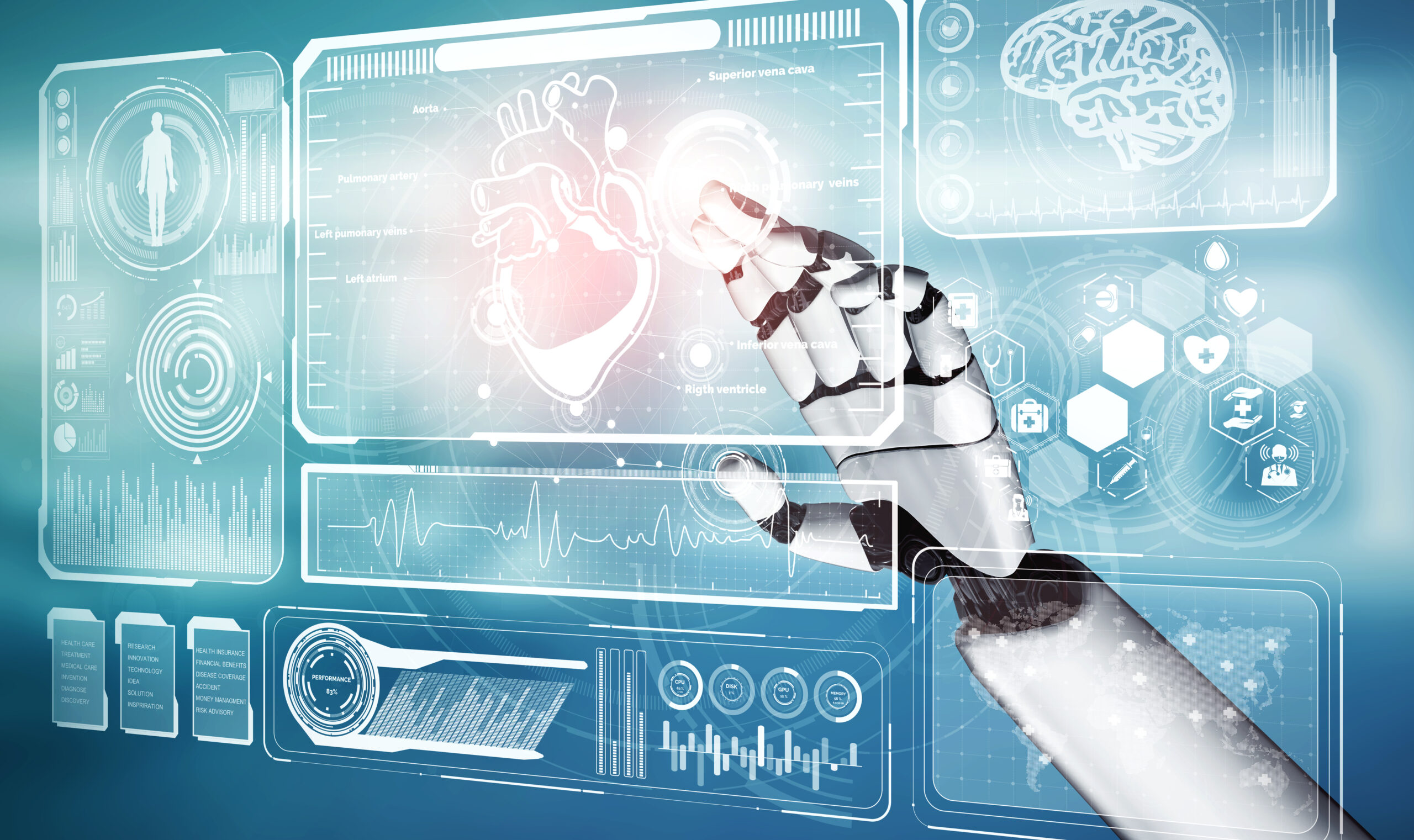How deep learning with AI and ML in healthcare will positively change the industry
Sometimes in healthcare, it’s good to miss the forest and find the tree. That’s the power of Artificial intelligence (AI) and machine learning (ML). With the growing trends, AI and ML in healthcare hold more power than ever.
Artificial intelligence and machine learning fascinate, confuse, and even scare us. Cautionary tales abound in science fiction books and movies, led by the groundbreaking written works of Isaac Asimov in the 1940s and 1950s. So while the concepts of AI and ML in healthcare have been with us for generations, the real examples have caught up today, with particular promise for the industry.
AI and ML in healthcare can respond to what’s happening to figure out smart actions hidden in vast forests of data. Examples and use cases:
- Clinical outcomes and results
- Claims and billing
- Population health
- Personal health records
- Drug and treatment research
- Performance and patient satisfaction metrics
But AI and ML in healthcare expand faster than we can keep up. This article looks to simplify our understanding of AI and ML. We also look at examples and use cases for how they can transform healthcare:
- What’s the Difference Between AI and Machine Learning?
- What Are Examples and Use Cases for AI and ML in Healthcare?
- Recommendations and Next Step for AI and ML in Healthcare
What’s the Difference Between AI and ML in healthcare?

Artificial intelligence technology can understand and interpret incoming information at a scale and speed well beyond that of the human brain. Machine learning lets devices learn from experience to do continuously smarter and more productive things without more human programming.
A common simple example of AI: Siri on Apple devices and Alexa by Amazon. Any of us who ask them questions know they don’t always get it precisely right. (Yet.) But these technologies comprehend words, concepts and search rapidly through vast amounts of data to respond with an informed answer.
A common simple example and application of machine learning: The Roomba, loved by vacuum-averse people around the world. Earlier versions of the Roomba acted based on their programming to follow certain patterns, bounce off of obstacles, and stop if they encountered something they couldn’t handle. Over time the Roomba learns to take different, more effective routes to cover and clean more areas more efficiently.
Newer versions of the Roomba keep getting smarter and smarter. It combines AI and ML to scan the room, assess obstacles, create a smart route for cleaning, and even avoid pet poops.
Examples of AI in Healthcare
Healthcare use cases for artificial intelligence and machine learning have no limits. Let’s look at AI technology examples that are already changing healthcare:
a) AI for Better Clinical Decisions and Outcomes

Doctors are smart. They know a lot, see a lot, and can assess a patient’s condition and circumstances quickly to diagnose and set a care plan.
But consider this example: What if doctors had a hyperintelligent health “genie” who rounded with them and continuously made fast, precise recommendations based on billions of data points right at the point of care? That’s artificial intelligence.
Healthcare data exists in numerous formats across dozens of different, often disconnected health systems, including EHRs, clinical data, administration, care planning, pharmacies, and claims and billing. AI is the super brain that can sift through big data, understand it, and use it to make the most accurate live recommendations to doctors and caregivers.
A use case? A doctor under time pressure on rounds has specific, swift information to make the most precise diagnoses and suggest personalized treatments based on historical clinical data, experience, and research. That informs the best patient care plans, fast. It also helps the care team know what prescriptions and doses to provide and how to deliver a satisfying, successful patient care stay that doesn’t last longer than it should.
Intelligently Monitor Chronic Conditions: Consider the use case of patients with chronic conditions—growing rapidly in number in the United States and around the world. Doctors and healthcare organizations are swiftly adopting remote patient monitoring (RPM). It can send live patient data from connected devices like blood pressure, heart rate, blood sugar, and much more. This provides much more reliable and accurate patient data and bridges what has always been a challenging doctor-patient communications gap.
But capturing and sharing the data is only the beginning. AI and ML in healthcare add a layer of operation smarts that can use RPM data over time to predict and recommend preventative action for adverse healthcare events.
Better Patient Surgical Treatments and Procedures: Imagine the mastery of the greatest surgeons guiding precision, repeatable, ever-improving devices. That’s the promise of machine learning and robotic process automation (RPA) driven by artificial intelligence.
Healthcare experts of course will always consider the potential and limitations of such groundbreaking technologies. However, this reality for AI, RPA, and machine learning has arrived.
b) Improving the Consumer and Patient Experience

Slow, incorrect, and poorly connected information frustrates consumers seeking the right care and the most helpful patient experience.
Smart AI technologies can tame the healthcare data chaos and help patients at every stage of their health journey. AI and ML in healthcare already power smartbots for many sites by answering patients questions as they search. They also provide comparison between care services and intelligently guide patients based on symptoms they enter. (Some bots are smarter than others. So make sure your AI is sophisticated enough to make the consumer experience easier and not more frustrating.)

These smartbots are a key component of the “digital front door” concept that healthcare continues to buzz loudly about. Simply put, the digital front door makes it easier for patients to research, select, and schedule care online. Frustrated patients indicate that they want to see more of their healthcare experience and communications managed digitally.
Over time, AI and ML in healthcare can help predict and suggest user information and actions. It will continuously get smarter and more helpful as patients interact more and more with the provider’s online tools and apps.
Better, Faster Care and Communications Mean Healthier, More Satisfied Patients: AI and ML in healthcare can improve the patient journey from end to end: Smart digital tools for research and appointment scheduling, including for inpatient tests and services. Point-of-care analytics for better, faster diagnoses and care planning. Automated doctor-provider-patient communications throughout.
All of this adds up to a healthier, happier experience for patients, from the primary care visit through hospital discharge and beyond. Faster, more accurate diagnoses help patients get the right care as quickly as possible. Better order coordination of labs and tests can intelligently prioritize inpatient needs based on AI-powered length of stay targets. Patients stay continuously informed about their care plan and get the right care without maddening discharge delays. And shorter lengths of stay in hospitals drive down acquired conditions such as infections, pneumonia, and sepsis.
c) Revenue Cycle and Financial Performance

Revenue cycle management presents the last frontier of healthcare transformation. The ACA, HITECH, and decades of subsequent rulings forced an expensive focus on moving toward EHR meaningful use and value-based care. A fast revolution in consumerism demanded swift response by healthcare providers to give patients better access and an easier digital experience to manage their own care.
Now the healthcare technology spotlight shines on revenue cycle management, with AI, machine learning, and robotic process automation at the center of the discussion.
Revenue cycle technology advances must focus on two key things: The data and the processes.
The Data: Patients, providers, and payers find data exists in different forms across many systems that often don’t synchronize together. This creates huge margins of error. This means something as simple as one incorrect data field on an insurance form can derail care and frustrate patients and providers for days.
AI and advanced analytics can make sense of this disparate data and recommend the best actions to get reimbursements in full and on time. For example, prior authorization denials by payers grind care to a halt, often with no clear reason why the payer denied the claim. AI brings clarity to the revenue cycle by predicting, prioritizing, and avoiding denials, interpreting massive amounts patient clinical and financial data to get ahead of potential confusion and breakdowns.
The Processes: Revenue cycle management also suffers from slow, error-prone manual processes. Manual collection outreach, scheduling, and cleaning up errors and omissions delay full reimbursements and decelerate care delivery. Robotic process automation, machine learning, and AI combine to make repeatable processes significantly faster or more accurate. For example, AI-driven robotic devices can physically process more claims and bills. Besides it is also empowered to find costly errors and anomalies in seconds that would take humans hours or days.
d) Clinical Trials

Nothing needs and consumes data like clinical trials for new drugs and medical devices. AI and machine learning can reduce the time to get health-beneficial and even life-saving treatments in the hands of doctors and patients in weeks instead of years.
AI can connect a universe of healthcare data dots immediately, processing mountains of medical records, disease registries, and scientific papers. This informs sharper trial hypotheses, innovative drug discovery, and new health device concepts.
AI also helps with one of the greatest challenges in clinical trials: Patient recruitment. AI and ML in healthcare can help contract research organizations (CROs) interpret patient sample data to find the best-fit candidates for successful trials, recognizing who could benefit or be at risk.
Trials move faster with better, more informative and accurate results. Patients stay more engaged and satisfied with the trial process. And huge investments in research become groundbreaking healthcare treatments and solutions at the speed of life, not bureaucracy and process.
Recommendations and Next Steps for AI and ML in Healthcare

Like all technologies, AI and ML in healthcare are the means for improving quality, not the end. It’s easy for hospitals executives, doctors, and other healthcare leaders to feel overwhelmed by trendy, rapidly advancing technologies.
If you can make the complex things simpler, your application of AI and ML in healthcare gets clear and inspiring:
Start With Your Desired Results and Work Backward
AI and ML in healthcare have hundreds of beneficial applications (we’ve only scratched the surface here). Instead of building a strategy around a particular technology, identify two to three priority areas of your clinical, care coordination, patient experience, or financial operations.
Use information like this article then consider “How can advancing AI and ML in healthcare combined with RPA technologies help us do this better and faster? How can they make the lives of our doctors, nurses, and caregivers easier?” . Then you can seek technology solutions that advance your vision, not just the ones that everyone talks about.
Bring Everyone into the Healthcare IT Conversation
Stop thinking of healthcare transformation as something that happens in different tracks. Transformation only succeeds if it aligns clinical, patient care and experience, and financial objectives. Your doctors, nursing leaders, and financial and operational teams must work together to make sure your investment in AI and ML in healthcare as well as robotic process automation, and other technologies are working together toward your care and business goals.

Find a Healthcare Technology Partner to Help You Sort It Out
You could install a new roof on your house. But do you really want to when pros could do it faster, better, and smarter? You build your organization on the values that support your mission to deliver exceptional quality care to every patient and the entire community. Your clinical, financial, and technology teams push every day to advance that mission.
Consider a software and technology partner that can guide, advise, and accelerate that vision and make the lives of your dedicated teams and their patients better in every way.
It’s not about the technology of AI and ML in healthcare only. It’s how they can help your healthcare organization do what it’s meant to do, better.

Don’t go it alone. Rely on KMS Healthcare as your partner to sort out the right technology path for your exceptional healthcare solutions, whether you’re a trusted vendor, provider, payer, or life sciences organization.
Schedule a consultation with the KMS Healthcare team to learn more about AI and ML in healthcare and how we can help bring your ideas and needs to fruition.

